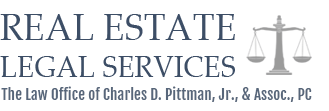Reverse Mortgage Short Sales
No list of lenders who most shamelessly obstruct the short sale process is complete without mention of the reverse mortgage lending industry. (“RMLI”) The RMLI has gotten a pass from heavy consumer scrutiny in part because it is a fairly new phenomenon. But the list of abuses is growing and the honeymoon appears to be over.
From the standpoint of an heir to a house subject to a reverse mortgage, the typical fact pattern is that the second of two elderly parents dies and the kids have a year to determine whether the house has equity (or some other value such as sentimental attachment) that it is worth trying to save from foreclosure and repossession by the reverse mortgage lender. Ideally, a year is plenty of time to make the analysis and even test the market by hiring a good listing agent. Certainly, it is sufficient time to distribute or sell the personal possessions in the property before the auction. In most cases, the heirs have no credit at stake or possible loss of inheritance if they just “walk away” from inherited property with negative equity. However, in some cases, disclaimers should be filed to make certain that heirs are not named in suits for unpaid real estate taxes, homeowner’s association dues, or municipal liens for weeds or nuisance abatement. See your local estate planning and probate attorney for advice on such matters.
Sometimes the decision on whether to try to save or abandon an old family home is painful and time consuming. It may take a full year to gain consensus on the best course of action. But the one year moratorium on foreclosure for most reverse mortgages when heirs are interested in redeeming the property can be undermined by other factors. If other provisions of the mortgage are deemed violated by the lender, they have the option of ordering the Trustee to conduct an expedited foreclosure! Such intervening factors would include the apparent neglect, vandalism, municipal citation, or presence of squatters in the property upon inspection by agents for the lender. Another factor might be the loss of hazard insurance once the insurance company discovers that the property is vacant. Perhaps the single most troubling situation is the one in which the reverse mortgage borrower dies and did not include his/her younger spouse on the mortgage obligation. In these situations, lenders have been known to commence foreclosure in under 90 days from the death of the borrower spouse. AARP among others, have filed injunctions against such lending practices and the Department of Housing and Urban Development seems befuddled as to how to regulate a fair outcome to both the RMLI and the surviving spouses of reverse mortgage borrowers. One likely proposal is for a 60 day moratorium on foreclosure where there is a surviving spouse.
But the question remains – how much can an elderly surviving spouse accomplish in 60 days to convince a lender not to foreclose and leave the spouse in the property? The options for such a spouse are not unlike the options facing any underwater homeowner trying to save their home from foreclosure: (1) deplete savings and retirement and relatives’ savings and retirement and beg, borrow or steal enough money to pay off the reverse mortgage. (2) Refinance if qualified. (3) Offer a deed in lieu of foreclosure. (4) Short Sell the property.
The big difference is that deeds in lieu and short selling, without a prior negotiated quid pro quo from the lender such as “cash for keys”, has very little benefit to the reverse mortgage surviving spouse. As a “non-borrowing” spouse his/her credit would not be affected by the foreclosure. Their primary objective is generally to remain in the property! The upside down homeowner on a normal mortgage faces the carrot and the stick of credit damage and rehabilitation and retaining possession can be as much a burden as a blessing to them. It makes more sense for such persons in Virginia to opt for short selling and the financial emancipation that may follow. I cannot overstate the “fresh start effect” and feeling of accomplishment and taking back power that many of our short sale clients experience with the proactive action of short selling.
On the flip side of the coin, the RMLI has a legitimate interest in not seeing the value of their security drastically undermined by abandonment and neglect while heirs suffer the paralysis of analysis. They apply this fear of losing value and likely outcome of needing to foreclose anyway to all offers to redeem reverse mortgages. The real possibility that they may actually be able to save money by taking a fair short sale offer on the property (versus suffering the expenses of foreclosure, maintenance, repair, rehab, listing and commissions) is outweighed by the greater likelihood that dead homeowners and out of state heirs generally make poor caretakers of property.
Bottom line – if you are interested in redeeming or short selling or making a compromise offer on a family property subject to a reverse mortgage, get legal representation early and use it often! Make sure the lender knows that you have taken every reasonable step to protect and secure the property, including having a family caretaker occupy the home, hiring lawn maintenance companies, keeping the utilities “on” and installing an alarm system. Keep the property fully insured.


